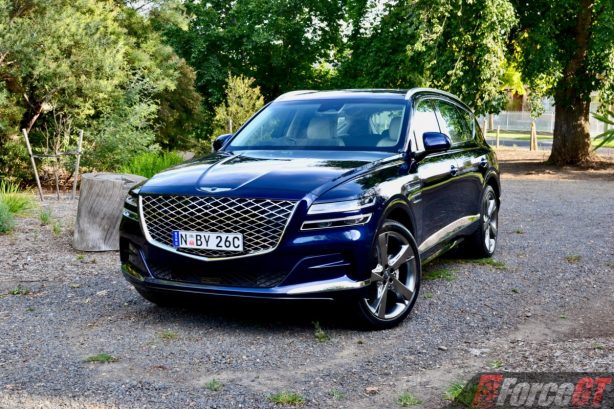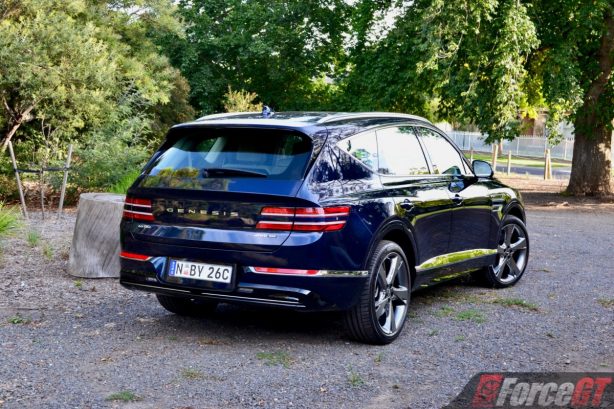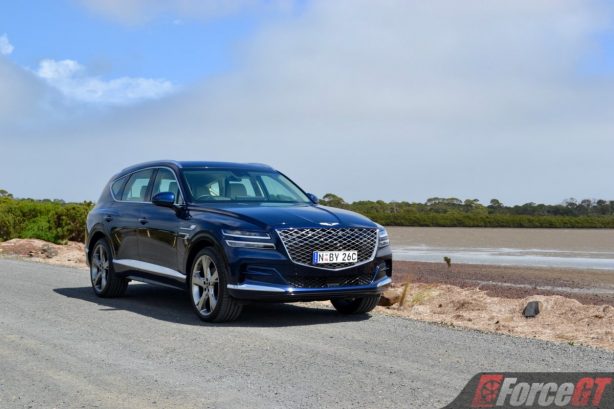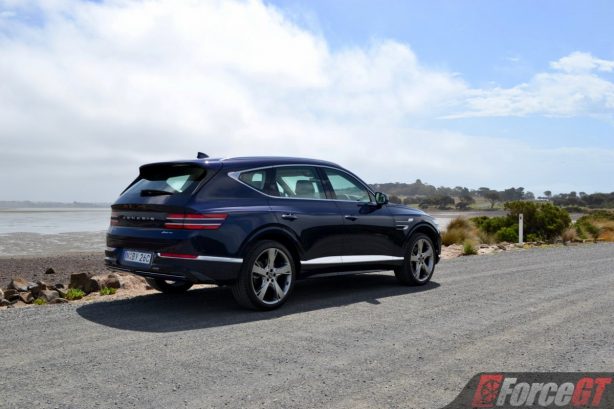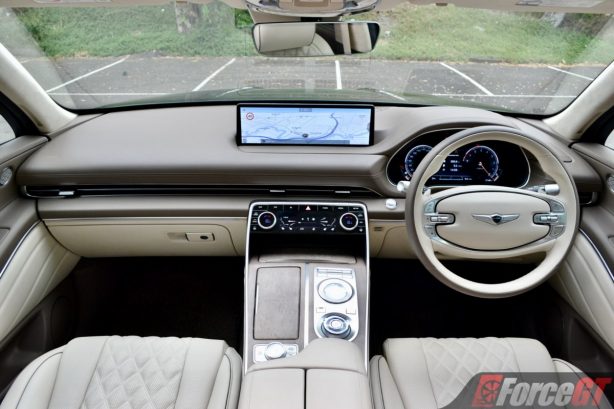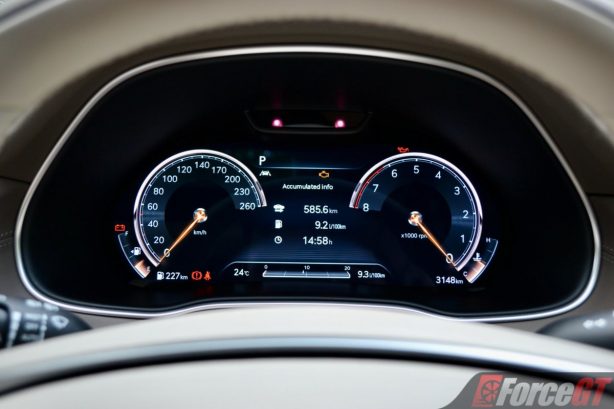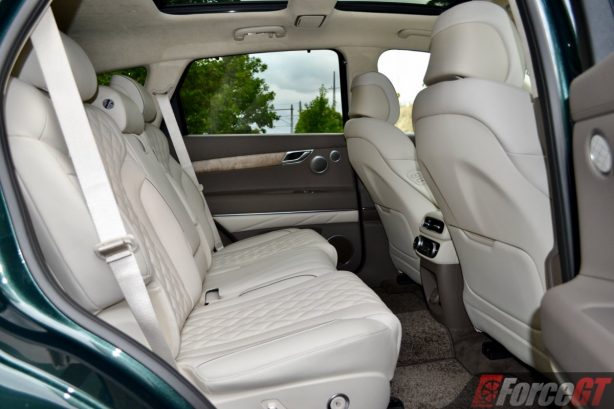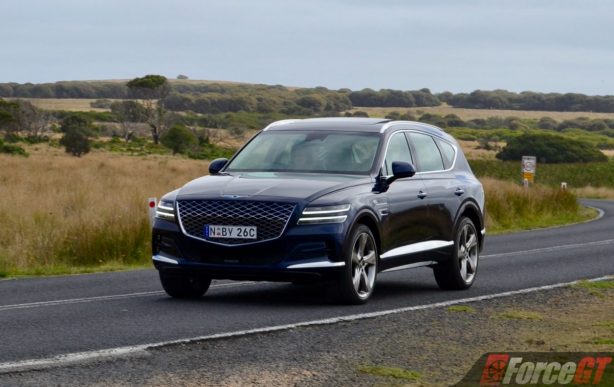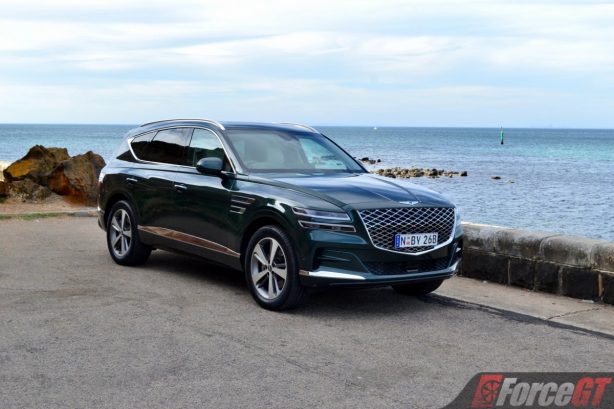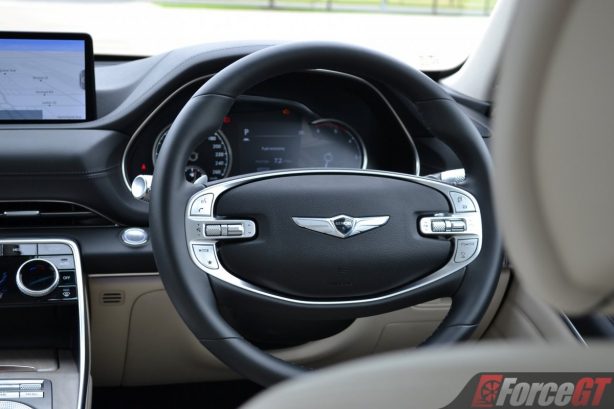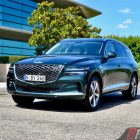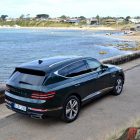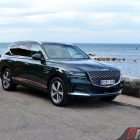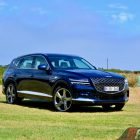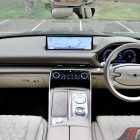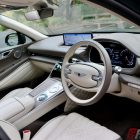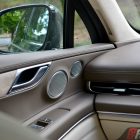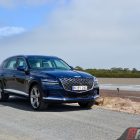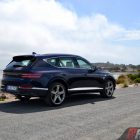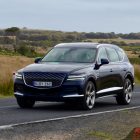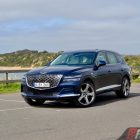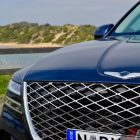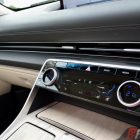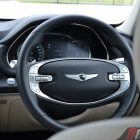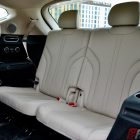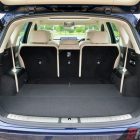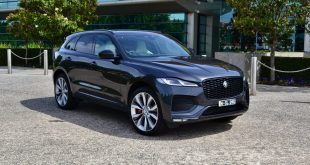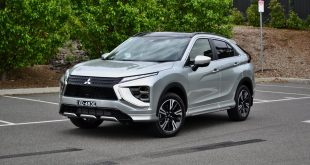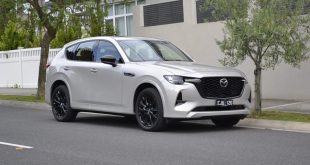What do you do when you have mastered the art of making mainstream cars? You build luxury cars. But it is not as simple as it sounds. Toyota’s premium offshoot founded in the late 80s, Lexus, took a good part of two decades to establish itself as a formidable luxury player. Nissan’s Infiniti also started around the same time as Lexus but has had tougher luck. And let’s not forget the brands that did not make it altogether – Mazda’s Efini and Ford’s Merkur.
Now, it is Hyundai’s turn. The brand has been consistently one of the top 5 sellers in Australia, and after hinting their luxury intentions with the Hyundai-badged Genesis luxury sedan in 2015, the company is now going all in.
Once a name of a Hyundai model is now turned into a full-fledged, standalone luxury brand. Hyundai wants you to see Genesis as a true alternative to the dominant German trio of BMW, Mercedes-Benz and Audi. It now joins the ‘challenger’ camp consisting of existing players Lexus, Jaguar and Volvo.
Will it succeed? Only time will tell. But one particular model in the brand’s fast expanding line-up is already looking like it has got all the right ingredients for success – the GV80 large SUV.
Available as a five- or seven-seater, with rear or all-wheel drive, the GV80 competes against luxury heavy weights such as the BMW X5, Mercedes-Benz GLE, Audi Q7, Volvo XC90 and Lexus RX.
With Australian pricing ranging from $90,600 to $103,600 plus on-road costs, the GV80 is priced to undercut its European rivals, giving the newcomer a good head start. The appeal is lifted with a comprehensive list of equipment included as standard, along with the segment’s longest warranty at 5 years.
Exterior
If you think the GV80 has a whiff of Bentley in its design, you are not wrong. From the brand emblem and prominent “G-matrix” grille at the front, to the imposing side profiles and chrome detailing all around, there is more than a hint of Bentley Bentayga in its proportions and detailing.
But we are not surprised with the Bentley connection because Genesis’ current design chief Luc Donckerwolke was formerly the head of Bentley design.
Nevertheless, the GV80 is a handsomely styled SUV, and certainly better looking than the Bentayga. It features the Genesis ‘look’ – two lines of the quad lamps circumventing all sides of the car, with the indicator light bar neatly integrated within, and the ‘Crest Grille’ which is bold and big, giving it unmistakable road presence.
Down the side, the long sweeping parabolic line flows uninterrupted from front to rear, descending gently downwards as it nears the back of the car, where it is counterbalanced with a small lid in the tailgate. The Genesis word is proudly spelled out across the rear fascia, with the number plate neatly integrated into the rear bumper.
While being new on Australian roads might have been a factor, the GV80 never failed to turn heads whenever it went during the one week I had possession of it. And so, for sheer visual statement, the GV80 is hard to beat.
Interior
For me, the biggest wow factor is the interior. It has an even more luxurious and enticing aura than the finest cabin in the segment. In fact, it looks and feels like it belongs to a car that is twice the price. The materials – such as the open-pore birch-wood veneer and glass-topped rotary gear selector – are first rate, the fit and finish is flawless, and the vibe is ultra-plush, super-expensive. There is not a hint of its association with parent company Hyundai, though the organic lines on the door cards do remind us of those in the Lexus LC.
There is no shortage of technology, too. The 14.5-inch central infotainment display is the widest screen we have seen on any car. It can be operated by touch or through the remote controls in the centre console. While the screen itself has superb clarity and is very responsive to the touch, the remote control can do with a lot more improvement. Because the control combines a rotary dial, arrow buttons and a round touchpad all into one, it is confusing to use. It is like combining the BMW iDrive, Audi MMI and Lexus Remote Touch into one messy system.
Granted, the menu is structured for easy navigation, though some on-screen buttons are a bit small, and there is a lack of address suggestion for the sat-nav, requiring you to key in the full address.
Elsewhere, the 12.0-inch Head-Up Display is massive but I wish there was an option to hide the lane trace assist indication to minimise clutter.
The standard instrumentation cluster combines a conventional analogue gauge with a LCD display, with the optional Luxury Package offering a super cool 12.3-inch 3D instrument cluster that gives a sense of depth to the virtual gauges.
Other convenience and luxury features standard in GV80 include wireless (Qi standard) smartphone charging, 12-way power-adjustable heated and ventilated front seats, a panorama sunroof, DAB+ digital radio, Apple CarPlay and Android Auto connectivity, and a 21-speaker Lexicon surround sound system.
Cabin space is comparable to other full-size luxury SUVs in class, with both the first and second rows offering generous room. The third row has decent legroom but is tight in headroom, making them more suited to children than adults. Accessing the third row is as simple as pressing a button to slide the second row forward.
Further back, there is plenty of space for luggage. Cargo capacity is rated at 727L with the third row stowed away, expandable to a cavernous 2,144 with the second row folded.
Performance
In Australia, the Genesis GV80 is offered with a choice of two petrol and one diesel powertrains. Petrol-powered models consist of the 224kW/422Nm 2.5-litre turbocharged four-cylinder range-opener and the 279kW/530Nm 3.5-litre twin-turbo V6 flagship. The former is rear-wheel drive, with all-wheel drive available as an option, while the latter is all-wheel drive only.
The oil burner slots in the middle of the range and is propelled by a 204kW/588Nm 3.0-litre inline six-cylinder turbo-diesel driving all four wheels.
On test were both the rear-wheel drive 2.5T and all-wheel drive 3.0D. For most drivers, the 2.5T offers more than enough performance for its use as a family SUV. With a rated 0 to 100km/h sprint time of just 6.9 seconds, it is no slouch. Power delivery is linear for the most part, with a strong mid range thanks to peak torque arriving at a low 1650rpm and hangs on until 4000rpm.
The engine is whisper quiet and silky smooth, too. Paired with an equally refined eight-speed automatic transmission, the drive is luxurious and relaxing.
With slightly less power but more torque, the 3.0D offers similar levels of performance to the 2.5T but with better fuel economy – 8.8L/100km in the diesel against 9.8L/100km in the petrol. It is a low revving diesel, with peak power arriving at just 3800rpm and peak torque spread from 1500-3000rpm. Its effortless demeanor sees it nudging 100km/h from rest in just 6.8 seconds. Of course, being a diesel, the throttle response is not as alive as the petrol around urban settings, but for crunching the miles in the open road the 3.0D is the pick.
It also impresses in refinement, with virtually not a hint of clatter from inside the cabin. The diesel is matched with the same buttery smooth eight-speed automatic as the 2.5T but gets an electronically controlled limited slip differential in the rear axle.
Like the powertrains, which have been tuned more towards refinement than sportiness, the handling has also taken the same approach. The GV80 feels more luxurious than sport to drive.
It reminds me of luxury SUVs in the early days, crossovers that were supremely plush and comfortable before drivers started buying them to replace their sport sedans and makers were forced to dial up the sportiness in them.
The GV80’s soft suspension and big wheels soak up bumps and ruts with aplomb, delivering impressive compliance across all kinds of surfaces. It is very quiet on the inside, too, with hardly any road or wind noise.
The soft setup does mean the GV80 is not as taut around the bends as some sportier European rivals. That is not to say it is cumbersome. In fact, it is still very manageable and does not quite feel its size. Grip is excellent, the brakes are strong, and the steering is precise. The GV80 does a fine job in balancing handling and ride comfort.
Ownership
As a newcomer, Genesis needs more than good products to penetrate a market. And that is where the “Genesis Difference” comes in.
All Genesis models come with free scheduled servicing for the first 5 years or 50,000km (70,000km for diesel), and the segment’s longest warranty period at 5 years and unlimited kilometres.
On top of that, the Genesis Concierge Service will arrange for the pickup and delivery of your GV80 when it is due for scheduled maintenance or warranty services. While your car is serviced, a Genesis courtesy vehicle is left at your disposal.
For extra peace of mind, you are also seamlessly enrolled in a complimentary 5-Year 24/7 Roadside Assistance program once you take delivery of your Genesis.
Verdict
Design & Comfort
Performance & Handling
Quality
Economy
Equipment & Features
OUR SCORE
4.0/5
+ Plus
- Luxurious interior
- Excellent refinement and comfort
- Useable 3rd-row of seats
- Long warranty
– Minus
- Rivals are sportier to drive
- Thirsty
Overall
As a full-size luxury SUV, the Genesis GV80 delivers in all aspects. It looks unquestionably high-end inside and out, backed by a rich and luxurious driving experience. To me, the GV80 is no doubt a genuine rival to offerings from more established marques.
But it remains a left-field option, and for many that might be the one thing that needs the most persuasion. Perhaps, its strong value proposition and leading aftersales services and benefits are strong enough encouragement for buyers to take the plunge.
Food for thought?
2021 Genesis GV80 pricing and specification
| Price (Excl. on-road costs): | From: $90,600 As tested: $100,600 (2.5T RWD + Luxury Package) $103,600 (3.0D AWD) |
| Warranty: | 5 years/unlimited kilometres |
| Warranty Customer Service: | 5 years road side |
| Country of Origin: | South Korea |
| Service Intervals: | 12 months/10,000km |
| Engine: | Turbo 2.5-litre four-cylinder petrol (tested): 224kW @ 5800rpm, 422Nm @ 1650-4000rpm 3.0-litre inline six cylinder turbo-diesel (tested): 204kW @ 3800rpm, 588Nm @ 1500-3000rpm Twin-turbo 3.5-litre V6 direct/multi-point injected petrol: 279kW @ 5,800rpm, 530Nm @ 1,300-4,500rpm |
| Transmission: | 8-speed automatic |
| Drivetrain: | Rear/All-wheel drive |
| 0-100km/h (seconds): | 6.9 (2.5T), 6.8 (3.0D) |
| Combined Fuel Consumption (L/100km): | Claimed: 9.8 / Tested: 9.6 (2.5T) Claimed: 8.8 / Tested: 7.4 (3.0D) |
| RON Rating: | 95 (2.5T) |
| Fuel Capacity (L): | 80 |
| Body: | 5-door SUV, 7 seats |
| Safety: |
|
| Dimensions (L/W/H/W-B) mm: | 4,945/1,975/1,715/2,955 |
| Turning Circle Between Kerbs: | 11.98 |
| Ground Clearance: | 205 |
| Tare Mass (kg): | 2,073-2,248 |
| Boot Space (L) (min/max): | 727/2144 |
| Entertainment: |
|
Competitors: BMW X5, Audi Q7, Mercedes-Benz GLE, Volvo XC90, Lexus RX
 ForceGT.com Car News, Car Reviews, Video Reviews, Tuning and much more.
ForceGT.com Car News, Car Reviews, Video Reviews, Tuning and much more. 